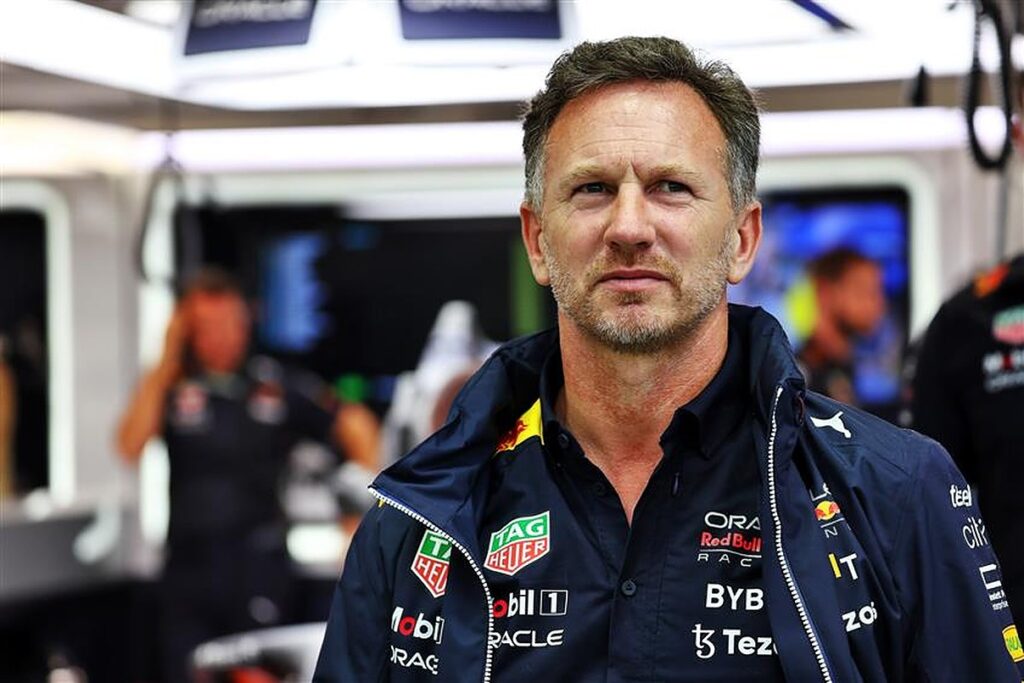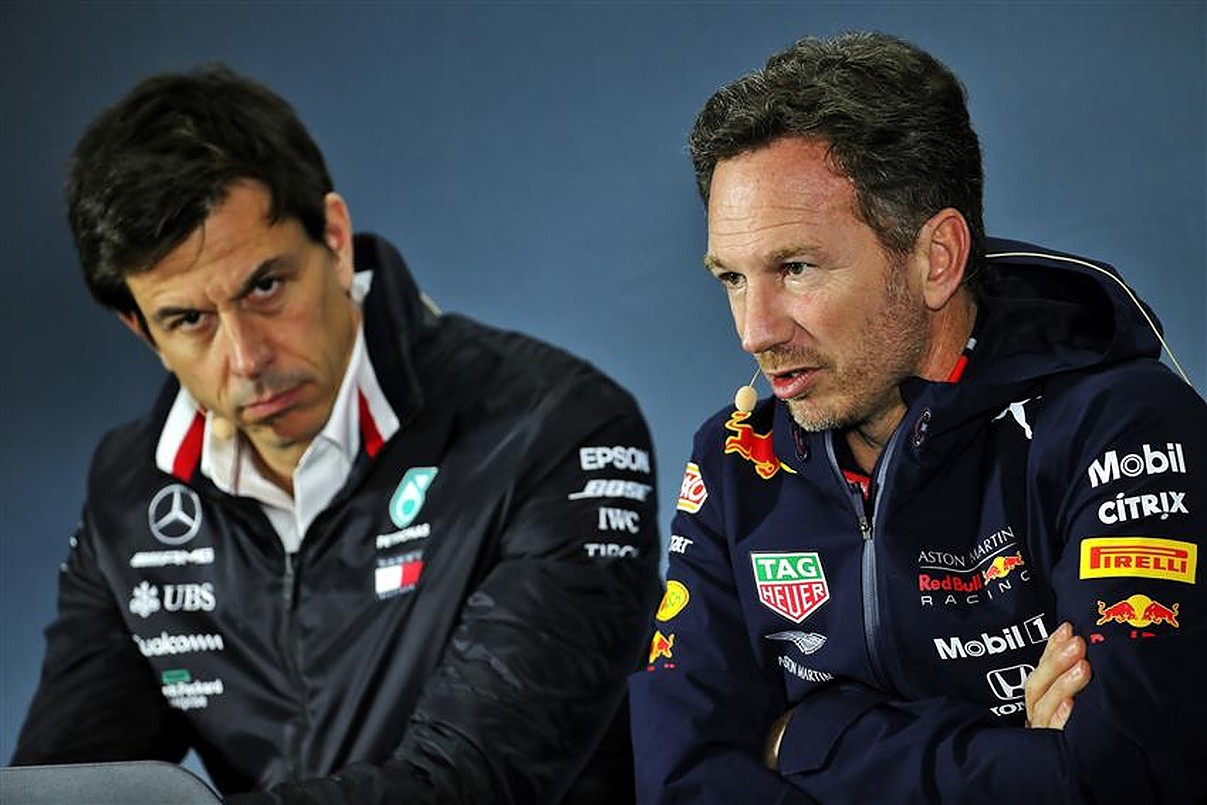Mercedes Formula 1 team principal, Toto Wolff, has expressed his scepticism towards Red Bull counterpart Christian Horner’s campaign for a key 2026 engine rule change, stating that it has “zero chance” of succeeding.
Wolff believes that Horner’s motivations may stem from concerns about Red Bull’s in-house engine development.
Last year, Formula 1 and the FIA approved the 2026 power unit regulations, which involved the removal of the complex MGU-H and an increase in the output of the MGU-K, resulting in approximately 50% of the total power output being electrical.
However, Horner has publicly voiced concerns that he has previously raised in private meetings, focusing on the consequences of a 50/50 split in power between electric and combustion and the progress of the 2026 chassis rules.

Want to work in Formula 1? Browse the latest F1 job vacancies
Horner argued that the proposed power ratio could create a car that demands too much from the chassis, leading to what he calls a “Frankenstein’s monster” scenario.
He raised concerns about the weight added to the cars due to the “colossal” battery size and cooling requirements, as well as the complexity of incorporating active aero to counterbalance the weight and drag.
Horner warned that the combustion engine could become merely a generator to recharge the battery, potentially jeopardising wheel-to-wheel racing and even suggesting that drivers may need to downshift on straights to regenerate batteries.
Horner proposed a 5-10% swing in the electric/combustion ratio, emphasizing the potential of sustainable fuels to allow F1 to rely more on the V6 engine while still promoting the right message.
He called for urgent attention to the issue.
However, Toto Wolff dismisses Horner’s comments and questions his true motivations, suggesting that Horner may be using this debate to mask shortcomings in Red Bull’s engine program.
Wolff acknowledged the challenges of finalising the appropriate chassis regulations and managing the battery’s performance throughout a lap.
However, he believes that F1 should embrace the opportunity to be at the forefront of innovation and confront the challenges head-on, rather than making it easier for engine manufacturers or teams.
He finds excitement in imagining what the modern Formula 1 car of 2026 will look like and how it can compensate for the reduced combustion engine output aerodynamically.
Wolff asserted that the regulations will not be changed or postponed, as they have been developed over several years with the involvement of all auto manufacturers, including Audi and Honda, who have recently committed to F1.
Addressing Horner’s concerns about drivers downshifting on straights, Wolff expresses his amusement and confidence in F1’s ability to innovate and devise chassis and engine regulations that avoid such scenarios.
READ: Max Verstappen demands Red Bull investigation
He highlighted the need to reinvent the current heavy and bulky chassis to meet the requirements of 2026.
Wolff mentioned the possibility of introducing retractable aerodynamic elements or altering the car’s shape to achieve greater sustainability and aerodynamic efficiency.
He assured that downshifting is not a real risk and that F1 will develop viable solutions to avoid it.

